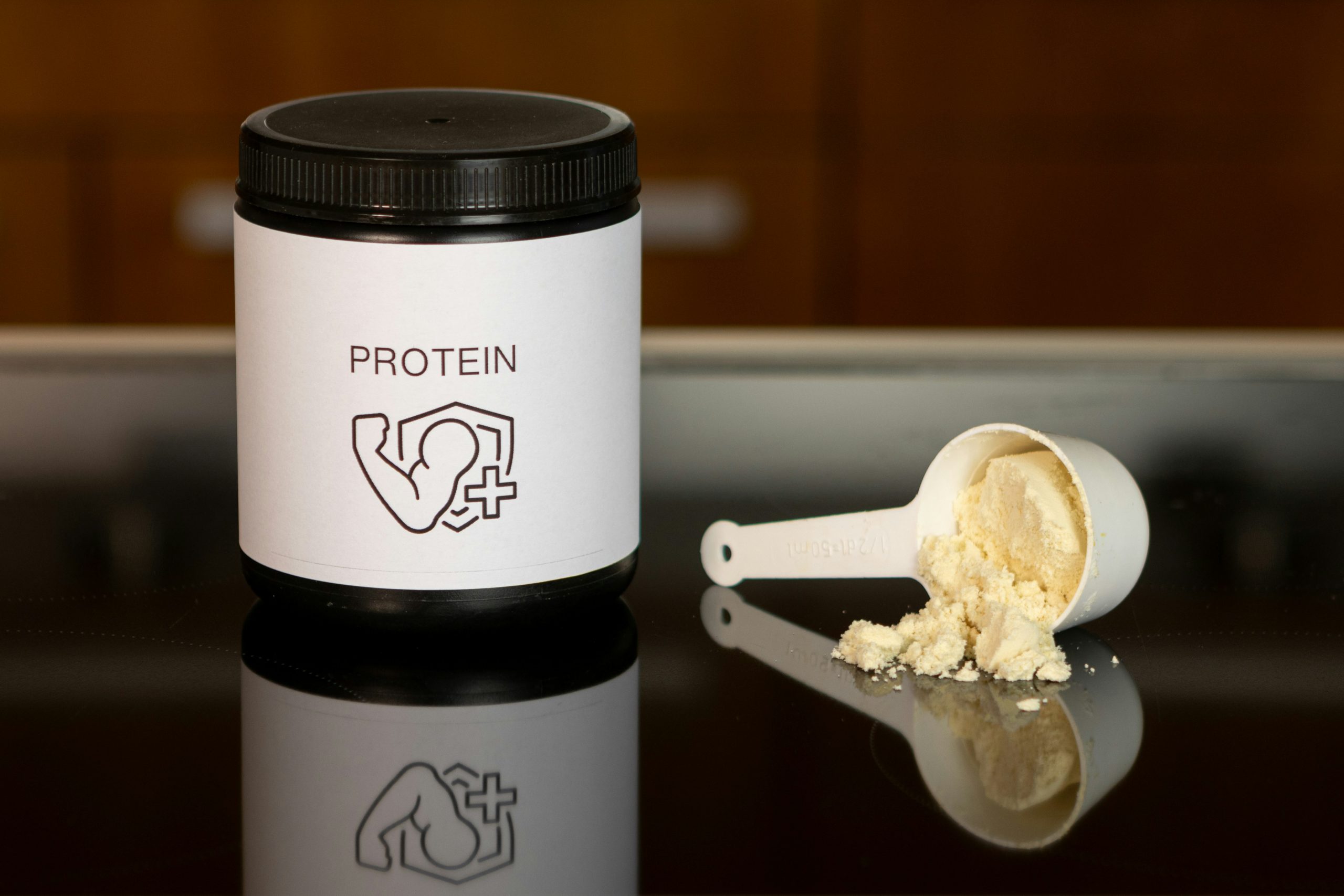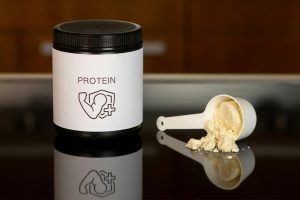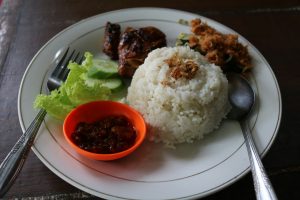
Are You Getting Enough or Too Much Protein? Protein is Good for You BUT…
Protein: it’s the nutrient everyone’s talking about in Singapore. From protein-boosted kopi at your local hawker to a dizzying array of protein bars at the supermarket, it’s hard to escape the hype. But before you reach for that extra scoop of protein powder, let’s get real. Yes, protein is essential, BUT… are you actually getting enough, or could you be inadvertently overdoing it? We’ll dive into the protein landscape in Singapore, armed with local data and expert insights, to help you strike the perfect protein balance.
Despite the protein craze, the latest data from the Ministry of Health (MOH) and the Health Promotion Board (HPB) suggests that most Singaporeans are already meeting their basic protein needs. The 2022 National Nutrition Survey reveals that over 75% of residents are consuming enough protein daily. So, for the majority of us, protein deficiency isn’t a major concern.
However, there’s a significant caveat: a concerning number of older adults (aged 50 to 69) are falling short. Approximately half of this age group aren’t meeting their recommended protein intake, which is particularly worrying given the importance of protein for maintaining muscle mass and overall health as we age. Factors like decreased appetite, difficulty chewing, and age-related metabolic changes can all contribute to this shortfall.
Decoding Protein Recommendations:
The Health Promotion Board recommends that adults consume approximately 0.8 to 1.0 grams of protein per kilogram of body weight per day. This guideline is designed to prevent protein deficiency and maintain lean muscle mass in most individuals. For a person weighing 60kg, this translates to a daily protein intake of around 48 to 60 grams.
 To put this into a local context, here’s a rough estimate of the protein content in some popular Singaporean dishes:
To put this into a local context, here’s a rough estimate of the protein content in some popular Singaporean dishes:
- Nasi Lemak (1 plate): ~25g protein
- Hainanese Chicken Rice (1 plate): ~30g protein
- Mee Goreng (1 plate): ~20g protein
- Roti Prata with Egg (1 piece): ~10g protein
While the average Singaporean is likely getting enough protein, certain groups should pay closer attention to their intake:
- Older Adults: As previously mentioned, older adults have higher protein needs to combat age-related muscle loss.
- Women: Women often consume less meat than men and may be more prone to restrictive dieting, potentially leading to inadequate protein intake.
- Teen Girls: Similar to women, teen girls may engage in restrictive eating behaviours, which can negatively impact their protein intake during a critical period of growth and development.
- Vegetarians and Vegans: Plant-based diets can be incredibly healthy, but vegetarians and vegans need to be strategic about their food choices to ensure they’re consuming a variety of protein-rich plant foods.
- Active Individuals: If you’re regularly engaging in strenuous physical activity, particularly strength training, you may require slightly more protein to support muscle growth and repair.
 If you’re a regular at the gym, you might be tempted to overload on protein shakes and supplements. While protein is undoubtedly important for muscle development, it’s crucial to remember that more isn’t always better. Experts generally recommend a protein intake of around 1.2 to 1.6 grams per kilogram of body weight for individuals who are actively involved in resistance training.
If you’re a regular at the gym, you might be tempted to overload on protein shakes and supplements. While protein is undoubtedly important for muscle development, it’s crucial to remember that more isn’t always better. Experts generally recommend a protein intake of around 1.2 to 1.6 grams per kilogram of body weight for individuals who are actively involved in resistance training.
Consuming significantly more protein than this amount is unlikely to result in significantly greater muscle gains. Your body can only process a certain amount of protein at a time, and excess protein will simply be broken down and eliminated.
As we age, we naturally experience a decline in muscle mass, a condition known as sarcopenia. This can lead to reduced strength, mobility, and overall quality of life. Ensuring adequate protein intake is essential for older adults to help slow down muscle loss and maintain their physical function and independence.
 Research suggests that older adults may benefit from increasing their protein intake by 25% or more above the standard recommendation. However, it’s crucial to achieve this through a balanced and varied diet that prioritises whole food sources of protein rather than relying solely on supplements.
Research suggests that older adults may benefit from increasing their protein intake by 25% or more above the standard recommendation. However, it’s crucial to achieve this through a balanced and varied diet that prioritises whole food sources of protein rather than relying solely on supplements.
High-protein diets have also gained popularity as a weight loss strategy, and they can be effective in certain situations. Protein helps promote satiety, which can reduce overall calorie intake. It also helps preserve lean muscle mass during weight loss, which is crucial for maintaining a healthy metabolism.
However, it’s important to recognise that protein is just one component of a successful weight loss plan. Long-term weight management depends on a holistic approach that encompasses a balanced and sustainable dietary pattern, regular physical activity, and healthy lifestyle habits.
Potential Drawbacks of Excessive Protein Consumption
While protein is undoubtedly an essential nutrient, it’s important to be aware of the potential downsides of consuming too much:
- Displacing Other Essential Nutrients: Overemphasising protein in your diet can lead to neglecting other vital food groups, such as fruits, vegetables, and whole grains, which provide essential vitamins, minerals, and fibre.
- Increased Risk of Chronic Diseases: Excessive consumption of animal protein, particularly red and processed meats, has been linked to an increased risk of heart disease, type 2 diabetes, and certain types of cancer.
- Strain on the Kidneys: High-protein diets can place a burden on the kidneys, especially in individuals with pre-existing kidney conditions.
Fortunately, Singapore boasts a diverse culinary landscape that offers a wide array of delicious and nutritious protein sources:
- Seafood: Fish, prawns, crabs, and other seafood are excellent sources of lean protein and omega-3 fatty acids.
- Poultry: Chicken and duck are versatile and affordable protein options.
- Eggs: A nutritional powerhouse, eggs are packed with protein, vitamins, and minerals.
- Tofu and Tempeh: These soy-based products are excellent plant-based protein sources and are commonly used in vegetarian and vegan dishes.
- Legumes: Lentils, chickpeas, beans, and other legumes are all excellent sources of plant-based protein and fibre.
- Nuts and Seeds: Almonds, walnuts, chia seeds, and flaxseeds are packed with protein, healthy fats, and other essential nutrients.
- Local Delights: Don’t forget about local favourites like tau kwa (firm tofu), edamame, and even certain types of mushrooms, which can contribute to your daily protein intake.
While most Singaporeans are currently meeting their basic protein needs, it’s crucial to be aware of individual requirements and potential pitfalls. Older adults, women, teen girls, vegetarians, vegans, and active individuals may need to pay closer attention to their protein intake.
The key is to adopt a balanced and varied dietary approach that includes a moderate amount of protein from a diverse range of sources. Avoid falling into the trap of believing that more is always better. If you have specific health concerns or dietary needs, it’s always best to consult with a registered dietitian or other qualified healthcare professional for personalised guidance.
No Comments
Leave a Reply
You must be logged in to post a comment.
